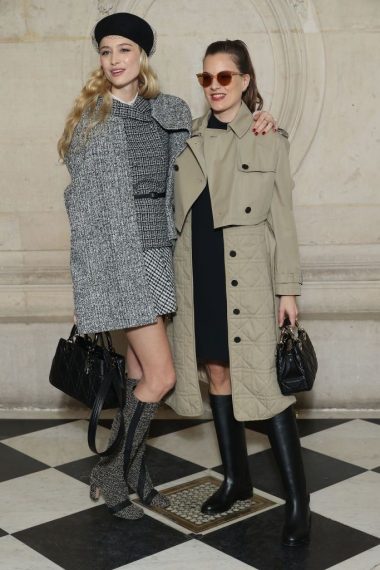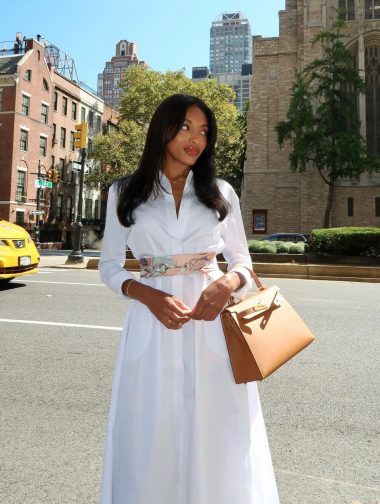In the glittering world of high society, where elegance meets tradition, the subtleties of behavior set the tone for every interaction. From black-tie galas to intimate soirées, the upper class operates within a nuanced code of conduct that often seems arcane to the uninitiated. The dance of manners and etiquette is not merely about superficial displays; it reflects a deep understanding of respect, consideration, and the art of human connection.
I grew up in the storied Northeast enclaves and here are the basic manners that the upper echelons of society hold dear, unraveling the rituals that both distinguish and unite people across cultures and generations.

Dining Manners
Understanding the use of various utensils, serving in a specific order, passing dishes in a particular direction, and adhering to table manners like keeping elbows off the table are all basic old money manners. In high society, dining manners reflect an understanding of etiquette and sophistication. Proper dining manners include using the right utensils for different courses, knowing how to place utensils when finished eating, and how to politely ask for something at the table. It also encompasses how to appropriately use a napkin, proper chewing, and not speak with a full mouth. There are particular rules for different dining situations such as formal dinners, where the seating arrangement and service style may adhere to traditional practices.
Dress Codes
Most old money people adhere to dress codes for various occasions, including knowing the difference between casual, business casual, semi-formal, and formal attire. Dress codes in high society often have specific requirements that depend on the formality of the occasion. A black-tie event would necessitate tuxedos for men and evening gowns for women, while business casual may allow for suits without ties and conservative dresses. Attention to detail, like matching accessories and proper grooming, is paramount. Understanding the expectations for each type of event and dressing accordingly signifies respect for the host and the occasion.
Conversational Tact
Avoiding controversial or divisive subjects, not interrupting others while they are speaking, and listening actively and attentively are common old money manners. This involves knowing what topics are appropriate and how to approach them with diplomacy and grace. Evading controversial subjects, listening actively, and engaging in meaningful conversation without dominating the discussion are key. Complimenting others genuinely and understanding when to discreetly change the subject also fall under conversational tact.
Sending Thank You Notes
Sending handwritten thank-you notes for gifts, hospitality, or important favors is a classic old money gesture. In high society, expressing gratitude through handwritten thank-you notes is a cherished tradition. These notes are typically sent after receiving gifts or after attending an elegant event, like a dinner party. It’s not just the act of sending the note but the timeliness, wording, and presentation that communicates genuine appreciation.
Respecting Privacy
Respecting others’ privacy, including not probing into personal matters or spreading gossip, is fundamental in high society. Maintaining confidentiality about private conversations and being discreet about personal information shows class and integrity. Avoid prying or overly personal questions, and respect the confidentiality of private conversations.
Punctuality
Arriving on time or even slightly early for appointments, events, or engagements is paramount. Being on time, whether it’s for a dinner, meeting, or any social gathering, demonstrates respect for others’ time. It’s seen as a sign of responsibility and consideration, whereas tardiness might be construed as negligence or disrespect.
Gift Giving
High society places value on thoughtful and appropriate gift-giving. This includes understanding the occasion, the recipient’s tastes, and cultural sensitivities. Gifts are usually wrapped elegantly, and it’s common to include a personal note expressing good wishes. Knowing when and what to gift according to the occasion and the relationship with the recipient is imperative.
Restraint in Public
Demonstrating politeness, restraint, and consideration in public spaces is a basic part of upper-class manners. Conducting oneself with restraint and poise in public settings means not drawing undue attention or behaving in a way that’s considered unseemly. This can include managing one’s emotions, adhering to accepted norms of public behavior, and maintaining a dignified demeanor.
Removing Hats Indoors
A traditional etiquette rule in many cultures, men are expected to remove their hats indoors, particularly in someone’s home or at formal events. It’s a sign of respect and an adherence to social norms that have been in place for centuries.
Social Media Manners
In an increasingly connected world, the manners of high society extend to online interactions. This includes being considerate in what and how you post, respecting others’ opinions, and maintaining privacy and discretion online.
The upper class rarely shares on social media and when they do, they are sure that others are comfortable with what they have shared. They are mindful of what is shared and how it is presented online, especially on public platforms.
Graciousness
Old money people are naturally gracious in accepting compliments, as well as extending them genuinely, and know how to gracefully navigate social faux pas or awkward situations.
This broad category encompasses treating others with kindness, courtesy, and empathy. In high society, graciousness means going beyond mere politeness to make others feel valued and respected, whether through thoughtful gestures, kind words, or accommodating others’ needs.
Global Awareness
Upper class people recognize and adhere to cultural norms when traveling or dealing with people from different cultural backgrounds. With the blending of different cultures and traditions, being globally aware means understanding and respecting international customs, traditions, and etiquette. In high society, this awareness helps in navigating multicultural settings and in forming meaningful connections with diverse people.
These manners are not exclusive to the upper class, but they may place a particular emphasis on them. Many are considered basic etiquette and can be appreciated across different social strata. Learning and practicing these manners can be seen as a sign of respect for others, attention to detail, and awareness of social norms.
Each of these topics serves as a pillar in the complex structure of high society manners. They signify not just a set of rules but a philosophy that prioritizes respect, thoughtfulness, and consideration for others. Together, they form a cohesive guide to interacting with grace, dignity, and sophistication.
Subscribe



